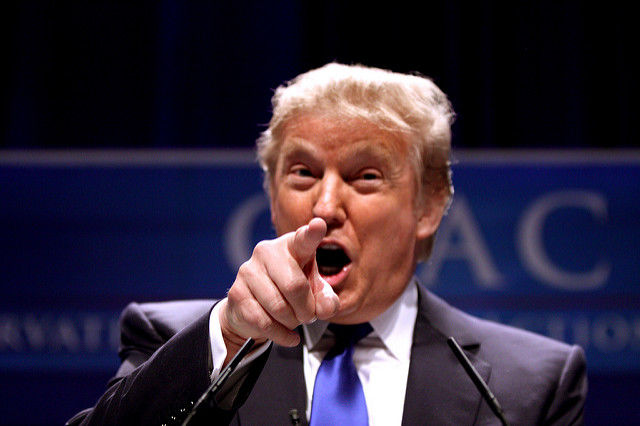Students voice opinions on election
November 11, 2016
Many students headed to the polls to vote in their first presidential election Nov. 8.
Some stayed up until the early hours of the morning, while others arose the next day to learn Donald Trump was America’s 45th president.
For most students who cast their votes in The Flor-Ala’s mock election, this was welcome news.
For others, the news was surprising.
“I went to bed expecting to wake up in the morning and Hillary (to) be president,” said sophomore Charles Harvel.
Out of 277 ballots, Trump won the mock election with 35 percent of the votes, while Hillary Clinton followed with 30 percent. Although most students voted red on campus, 55 percent of young adults between 18 and 29 voted blue nationally, according to The New York Times exit poll.
The race for presidency was not as close in the national election. A candidate must receive 270 electoral votes to win, and Trump exceeded the set number with 279. Clinton received 228.
However, the gap was not as wide in the popular vote. Most Americans voted for Clinton, allowing her to gather 48 percent of the votes, but Trump was on her heels with 47 percent. This is the fifth time in America’s history a candidate has won the White House without winning the popular vote.
Some Americans chose not to vote Republican or Democrat and instead chose third party candidates Gary Johnson or Jill Stein.
Libertarian Party candidate Johnson received three percent of America’s vote, and Green Party Candidate Stein received one percent.
Johnson fared better on UNA’s campus, gathering 15 percent of student votes in the mock election, while Stein did worse, garnering 0.7 percent of the votes.
Some students refused to vote for any of the above candidates. Four percent of students chose to write in candidates, including Albus Dumbledore, President Kenneth Kitts and Bernie Sanders.
Thirteen percent of students said they would abstain from voting altogether.
Freshman Hayden Suddith said although he was not excited about any of the candidates, voting provides justification for protesting a president’s actions.
“I’d rather vote and be one of those people that complains for four years than be one of those people that doesn’t vote and complains” Suddith said.
A student who voted in the campus mock election revealed they were less than excited about their chosen candidate.
The student chose Clinton but only “reluctantly,” they said in a comment left on the ballot.
Some students feel they had to choose the lesser of two evils, but others embraced their candidate of choice, like junior Alex Jones.
“Trump train has no brakes,” Jones said.
Other students are not thrilled the country has chosen to hop aboard the Trump train.
“The best way to describe how I feel is disappointed,” said senior Mai Curott. “I’m apprehensive. Trump is good at fear. On both sides, we’re all afraid of our rights being taken away by people with too much power, and no one knows what he’ll do next.”
A student anonymously elaborated on their Trump support in the mock election by adding an additional comment to the ballot.
“Build that wall, sincerely, The Chalkers,” said the note.
The phrase is a nod to the expressions of trump support that decorated campus last month. Political slogans written in chalk such as “Hillary for Prison” and “Trump approves this wall” appeared multiple places on campus.
Senior Cody McCrary said he remained more apathetic about the election.
“I’m not into politics because it’s not like anything is going to change that much,” McCrary said.
Editor’s Note: Associate News Editor Ciera Golliver contributed to this story.



![Caleb Crumpton [COURTESY OF UNA SGA]](https://theflorala.com/wp-content/uploads/2024/07/caleb-crumpton-courtesy-of-SGA-425x600.jpg)






